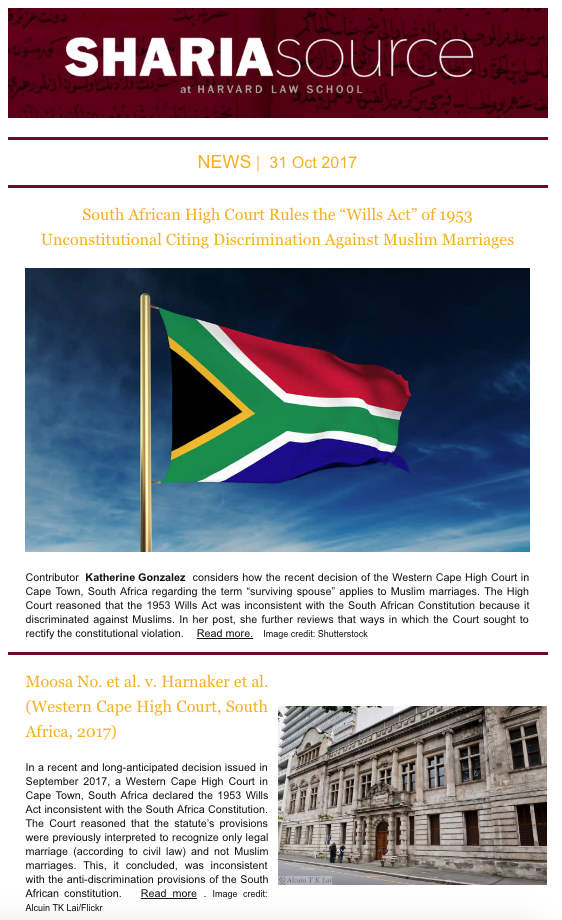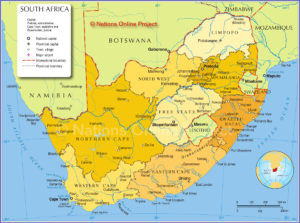
 South African High Court Rules the “Wills Act” of 1953 Unconstitutional Citing Discrimination Against Muslim Marriages Contributor Katherine Gonzalez considers how the recent decision of the Western Cape High Court in Cape Town, South Africa regarding the term “surviving spouse” applies to Muslim marriages. The High Court reasoned that the 1953 Wills Act was inconsistent with the South African Constitution because it discriminated against Muslims. In her post, she further reviews that ways in which the Court sought to rectify the constitutional violation. Read more. Image Credit: Wikipedia
South African High Court Rules the “Wills Act” of 1953 Unconstitutional Citing Discrimination Against Muslim Marriages Contributor Katherine Gonzalez considers how the recent decision of the Western Cape High Court in Cape Town, South Africa regarding the term “surviving spouse” applies to Muslim marriages. The High Court reasoned that the 1953 Wills Act was inconsistent with the South African Constitution because it discriminated against Muslims. In her post, she further reviews that ways in which the Court sought to rectify the constitutional violation. Read more. Image Credit: Wikipedia
 Moosa No. et al. v. Harnaker et al. (Western Cape High Court, South Africa, 2017) In a recent and long-anticipated decision issued in September 2017, a Western Cape High Court in Cape Town, South Africa declared the 1953 Wills Act inconsistent with the South Africa Constitution. The Court reasoned that the statute’s provisions were previously interpreted to recognize only legal marriage (according to civil law) and not Muslim marriages. This, it concluded, was inconsistent with the anti-discrimination provisions of the South African constitution. Read more. Image credit: Alcuin TK Lai/Flickr
Moosa No. et al. v. Harnaker et al. (Western Cape High Court, South Africa, 2017) In a recent and long-anticipated decision issued in September 2017, a Western Cape High Court in Cape Town, South Africa declared the 1953 Wills Act inconsistent with the South Africa Constitution. The Court reasoned that the statute’s provisions were previously interpreted to recognize only legal marriage (according to civil law) and not Muslim marriages. This, it concluded, was inconsistent with the anti-discrimination provisions of the South African constitution. Read more. Image credit: Alcuin TK Lai/Flickr
 Country Profile & Constitution: South Africa SHARIAsource has completed a series of Country Profiles outlining the structure, sources of law, and constitutional status of Islamic law in most countries of the world; and we have collected the constitutions of the world through The Constitute Project. This South Africa Country Profile provides a basic overview of the legal history and institutional structures of the Republic of South Africa. Under South Africa’s Constitution, Islamic law (sharīʿa or fiqh) has no legal status. Image credit: Nations Online Project
Country Profile & Constitution: South Africa SHARIAsource has completed a series of Country Profiles outlining the structure, sources of law, and constitutional status of Islamic law in most countries of the world; and we have collected the constitutions of the world through The Constitute Project. This South Africa Country Profile provides a basic overview of the legal history and institutional structures of the Republic of South Africa. Under South Africa’s Constitution, Islamic law (sharīʿa or fiqh) has no legal status. Image credit: Nations Online Project
See the full newsletter.

